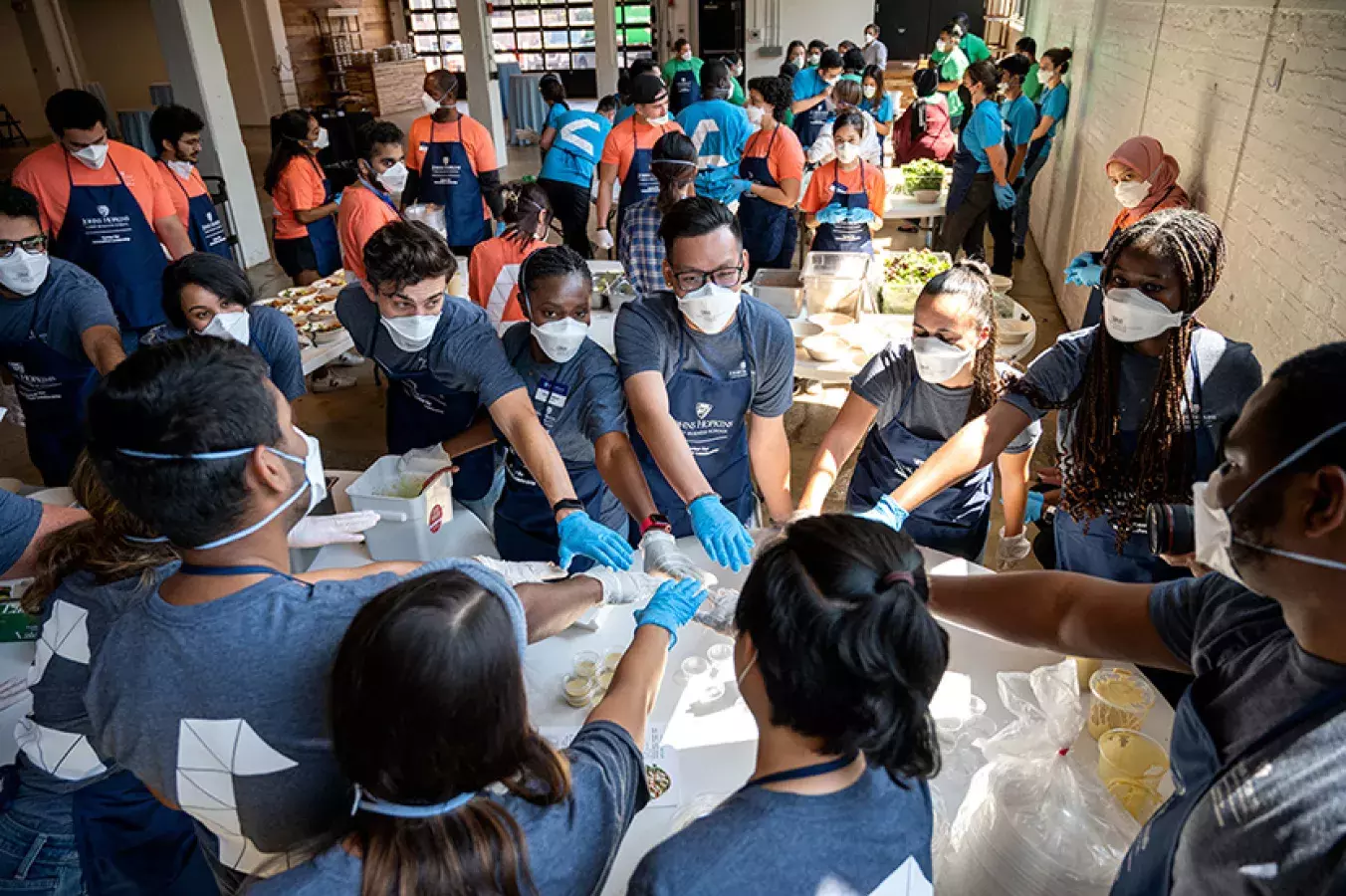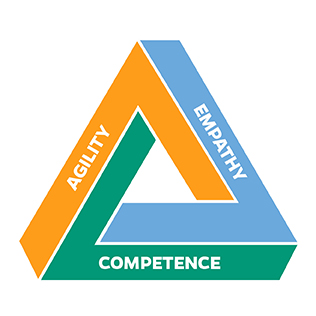About Us

Our Mission
The Center for Innovative Leadership aims to advance knowledge and build capacity for innovative leadership in modern organizations. Housed at the Johns Hopkins Carey Business School, the Center is a hub for new ideas and insights on leadership, combining faculty-led research, student-facing programming, and community-focused impact.
-
At CIL we are focused on translating research into practice—illuminating how the latest research findings from scholars in management, organizational science, and other social science disciplines can be distilled and enacted in the daily practices of leaders across industries and around the world. We exist to support and accelerate the production of new research on leadership in today’s dynamic, complex organizations and bring that research to life through engaging student experiences and powerful industry partnerships.
We invite you to explore our website, to learn more about the work of CIL faculty, students, and industry leaders, to challenge your own assumptions about leadership, and to connect with our community of scholars and practitioners aiming to enhance innovative leadership in modern organizations.
By joining our online community, downloading our research-based Field Guides, participating in one of our developmental student experiences, or supporting CIL’s research and programming efforts, you are helping to advance the science and practice of leadership and chart new paths for success in the world of work. We’re glad to have you with us!
Yours in Leadership,
Mike Doyle, MEd
Executive DirectorChristopher Myers, PhD
Faculty Director
Our History
Advancing knowledge and developing effective leaders have long been core goals of the Carey Business School, and moreover are evident throughout the research efforts and student programming across all of Johns Hopkins University. At Carey, programs for student leadership development and coaching were launched alongside the school’s new full-time degree programs when the school was named and founded in 2007, while at the same time researchers studying leadership in modern organizations were recruited from top business schools across the country to join Carey’s new full-time faculty.
The first roots of CIL can be traced back to activities in the school’s Office of Experiential Learning, where some of the Center’s signature programming, including the Leadership Development Expedition course, were launched by Mike Doyle (then Director for Integrated Learning in the Office of Experiential Learning) and Chris Myers. Through additional faculty and staff collaborations, a variety of other programs and opportunities for students to engage with leadership research were developed and offered as co-curricular experiences.
In 2020, facing the height of the COVID-19 pandemic, Doyle and Myers began discussions with senior leaders at the Carey Business School, including then-Vice Dean for Faculty and Research Valerie Suslow, to launch a new initiative focused on innovative leadership solutions. Recognizing that leadership was at the heart of organizational responses to the kinds of crises and challenges revealed by the pandemic, they sought to centralize existing efforts and expand new opportunities to both expand and disseminate knowledge about how to lead in innovative ways in the new world of work.
In late 2021, Carey Business School Dean Alex Triantis, with approval from Johns Hopkins University leadership, formally announced the launch of the Center for Innovative Leadership to advance knowledge and build capacity for innovative leadership in modern organizations
The Center began formal programming in 2022, and since then has expanded its offerings to include several signature student experiences, including the CIL Fellows program, the MBA Leadership Challenge, and the Leadership Development Expedition courses. The Center has also convened a group of Core Faculty and Affiliates who advance the science and practice of leadership, sharing their expertise in a range of media articles and outlets, and working directly with industry as thought leaders on the challenges facing modern organizations.
“CIL will be the school’s “hub” for leadership research and engagement, providing resources to support and extend the impact of faculty research on leadership, while also translating this research into dynamic leadership development experiences and programming for Carey students.”
Dean Alexander Triantis, October 2021
Our Philosophy

The Center for Innovative Leadership draws its philosophy from the research and scholarship of Center co-founders Michael Doyle and Christopher Myers, who developed a framework of Present Moment Leadership based on careful review of extant literature and consideration of the challenges facing leaders at all levels (not just the C-suite) in today’s world of work.
Building on decades of research in behavioral and situational theories of leadership, Doyle and Myers’ Present Moment Leadership (PML) model focuses on leadership as the moment-to-moment enactment of differing levels of three interrelated dimensions: Empathy, Competence, and Agility.
- Organizations are more interdependent and collaborative than ever before, and leaders who engage others with empathy are often those best positioned to bring together the diverse experiences, insights, and expertise needed to generate innovative solutions.
- As the world of work grows in complexity, building competence in emerging knowledge domains, as well as core business fundamentals, is necessary to keep pace and guide organizations to innovative solutions.
- Leading modern organizations requires agility and a readiness for change, understanding when to let go of old habits and embrace new ideas, and how to flexibly navigate new challenges and innovations.
The PML model reveals that effective leaders are those who can 1) accurately assess the needs of the current moment and 2) deploy the right combination of empathy, competence, and agility to meet those needs. Every moment – whether working with a new team, facing an unexpected challenge, or taking over an existing project – presents leaders with a different set of needs, and the most effective leaders find innovative ways to combine the right amount of empathy for others, the right extent of their own skills and competence, and the right degree of agility and willingness to embrace different approaches.
In other words, effective leadership is considering in your mind – and more importantly, answering in your actions – the simple question: “What does this moment ask of me as a leader?”


